Are You Concerned About The Chemicals That Surround You?
A 2013 study by Environmental Defense, a Canadian environmental action organization, found over 120 chemicals in the cord blood of newborns.
Each and every one of us has a ‘chemical load’ – the number of toxins we carry in our bodies, which can include heavy metals like mercury, lead or arsenic, and PBDEs (Polybrominated Diphenyl Ethers ) such as phthalates, formaldehyde, bis phenol A and PCBs (Polychlorinated Biphenyls).
Your chemical load can have a profound impact on your health – heavy metals are extremely detrimental to your neurological functioning, phthalates can disrupt your endocrine balance and lead to hormonal dysfunction, and other PBDEs can seriously impair the functioning of your thyroid gland. Read more about endocrine disruptors and how they affect your health.
A WHO report identified over 800 chemicals that can interfere with your hormone systems, yet only a fraction of these have been identified. Your chemical load depends on where you live and how old you are, but can also be influenced by your lifestyle.
It is becoming crucial in our over chemicalized world to find ways we can reduce our chemical load and its detrimental effects on our health.
If you have chronic fatigue syndrome, you may be suffering from a toxic overload, both within your body and in your home. It is therefore important to learn how to reduce toxins in your home. Many people with chronic fatigue syndrome also have Multiple Chemical Sensitivites (MCS).
The GOOD news is that you CAN reduce your household’s chemical load by taking the appropriate measures – here’s how:
5 Easy Ways To Reduce Toxins In Your Home
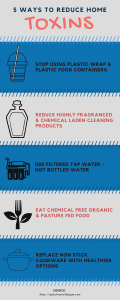
1. Why Did I Ditch Using Plastic Wrap And Plastic Containers In The Kitchen?
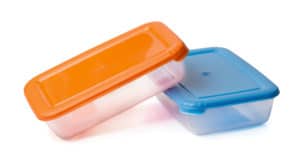
I shouldn’t have to recommend you ditch plastics – plastic containers are bad for the environment and bad for your health. A recent study found that 93% of Americans have detectable amounts of the dangerous chemical bis phenol A (BPA) in their bodies, largely due to contact with plastic products in their day-to-day life.
Many of the chemical additives that give plastic its properties can have a direct impact on your health – DEHP is a recognized carcinogen. Lead, cadmium, and mercury are often present in plastic products. And, developmental problems, immune system suppression and increased cancer risk are all associated with using plastics.
To be on the safe side, reduce your use of plastic wrap and plastic containers – even those marked as BPA-free. To reduce your chemical load, swap your plastic containers for safer and healthier alternatives such as glass storage containers, Mason jars, recycled jam jars or containers made from ceramic and porcelain. Use all natural beeswax fabric wraps to store cut foods and cover food in the fridge instead of plastic wrap.
Instead of plastic water bottles, buy a reusable stainless steel or glass water container – it will not only protect you and your family but save you money in the long run, not to mention it will help the environment. Try this sports water bottle as a healthier alternative to carrying water in plastic bottles. Or try any of these great alternatives to plastic water bottles.
2. Why Did I Stop Using Highly Fragranced & Chemical Laden Cleaning Products?
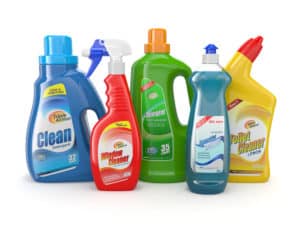
Ditching the plastic containers in your home is a great starting point to reduce your chemical load but many conventional cleaners can be just as bad for your health.
Most of the household cleaning products in your cupboard contain up to 90% or more phthalate-riddled ‘fragrance’. One way to reduce your chemical load is by steering clear of highly fragranced cleaning products or opt for plant-based alternative cleaners.
There are many plant based cleaning products available in supermarkets and online at reasonable prices nowadays. By using these gentler less highly fragranced products you can also avoid the hazardous air pollutants like formaldehyde and acetaldehyde contained in their standard cleaning counterparts.
It’s commonly believed that fragranced cleaning products and air fresheners improve the air quality of your home. However, the opposite is true as fragranced products have a negative effect on air quality.
For some people the negative effects of these chemicals is felt straight away, but the effects can also be more subtle with sufferers not realizing they are affected until much later after the exposure, when it’s too late.
If you want to take things up a notch, consider making your own cleaning products. Mix some white vinegar with baking soda, lemon juice, and hot water.
This type of homemade cleaning product is simple, effective, is budget friendly and doesn’t have the associated health risk. Many people think that to be clean you need to use conventional multicoloured, fragranced cleaners, but they are not necessary.
Even cleaning products marketed as ‘safe’ have been linked to an increased risk of asthma, particularly in children, and conventional products often contain EDC, triclosan, or lung and skin irritants such as ammonia and bleach.
3. Why Did I Install A Water Filter At Home?

Would you go out on the street, dig out the main pipe that feeds water into your house and drink it? Then why settle for unfiltered tap water?
Studies have consistently shown that tap water is packed with harmful chemicals such as chlorine and fluoride, and even rust scale, sediments, bugs and traces of prescription drugs: certainly not a cocktail you’d like to put in your or your family’s bodies.
What’s worse, tap water can also contain heavy metals like lead, chemical, and pesticides which can carry an additional health risk.
But bottled water is no better than unfiltered tap water. You should consider ditching bottled water: plastics are bad for the environment, more expensive than filtered tap water, and can pose a danger to your health.
Actually, only a fraction of the bottled water comes from springs or groundwater sources – around a quarter of it actually comes straight from a tap somewhere. Additionally, the plastic bottles can leach harmful chemicals into your water if exposed to heat for a prolonged period of time, e.g., sitting in your car in the summer heat.
I gave up drinking water from plastic bottles a long time ago. I drink filtered tap water and carry it in a non toxic healthy sports water bottle.
Your local water supply is tested and regulated, however sellers of bottled water do not face such strict testing conditions. The safest option is to go for filtered tap water – it’s cheaper, safer, healthier and much friendlier to the environment.
Under or above sink water filter systems are readily available and easily installed. If your budget allows, you can even go for a full home water filter system.
4. Why Did I Start Buying Only Organic Food?
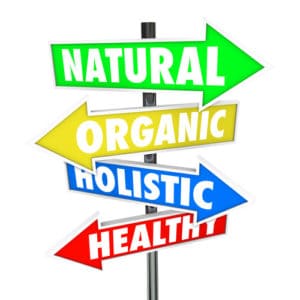
You are what you eat and if you want to reduce the chemical load in your home, it’s imperative that you also switch your eating habits around.
A healthy diet includes a large variety of fruits and vegetables, however some of your favorite fruit and veggies may contain surprising amounts of harmful pesticides.
In conventional farming, crops are sprayed regularly with toxic pesticides to kill insects and chemical pesticides are utilized to keep weeds under control. Plants absorb these toxic chemicals and the residue remains on the skin of the produce even after they are washed.
Much of this conventionally sourced produce is packed with chemicals linked to endocrine disruption, behavioral problems, cancer, and Parkinson’s disease.
Organic fruit and vegetables are definitely the best choice for your health, but if it’s a little bit beyond your budget a good alternative would be to focus on the top foods that carry the highest levels of pesticides and switch to organic forms of these.
Switch to organic apples, strawberries, pears, grapes, lettuce, nectarines, peaches, apricots and tomatoes, and look for pesticide-free alternatives to grains and their products. You can read more information from EWG on their ‘Dirty Dozen’ fruit and vegetables.
Peeling all fruit and vegetables ensures you are not ingesting the chemical residue on the skin of the produce.
When it comes to meat, organic free-range grass fed beef and lamb is best. Wild caught fish such as salmon is another healthy protein source.
Animals raised organically are given food that is organic, free of antibiotics and non GMO. It is thought that not only do you avoid ingesting chemicals from organic animals but they have more nutrients than conventionally raised meat.
Free range animals graze naturally on bugs and grubs which also increases the nutrient profile increasing their vitamin and mineral content as well as improving the fatty acid profile.
5. Why Did I Replace My Non-Stick Cookware With Ceramic And Cast Iron?
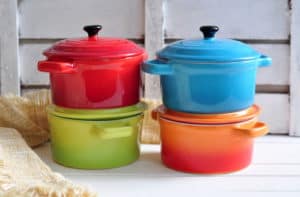
Your Teflon cookware may be your best friend when it comes to making cleaning up easier, but studies have shown that some of the compounds used in its production – namely PFCs – may be linked to an increased risk of cancer of the testicles, pancreas, liver and possibly mammary cancer in rodents.
Studies show that humans are not able to metabolize PFCs well. In some cases it can take years for your body to rid itself of these chemicals.
The PFCs also disrupt fetal development and can have a profound effect on the immune and nervous system. When non stick cookware is overheated or scratched, the toxins can leak directly into your food, so your safest option is to ditch non-stick cookware entirely.
Instead, switch to healthier alternatives such as enamel-coated iron, stainless steel, cast iron or ceramic. This is the cast iron skillet I use. Ceramic is currently considered to be the safest and most environmentally friendly option: it’s free from PTFE and PFOA, both of which can break down and release toxic gases when overheated.
This type of cookware can be expensive, however you’ll have it for many years and it can be passed down through the family if you take good care of it. Not only is it a healthier option, but cooks food more efficiently due to its great heat retention properties.
Replacing one item at a time is kinder to your budget than replacing all of your cookware at once. Use this healthy cookware instead, I love the way it cooks too.
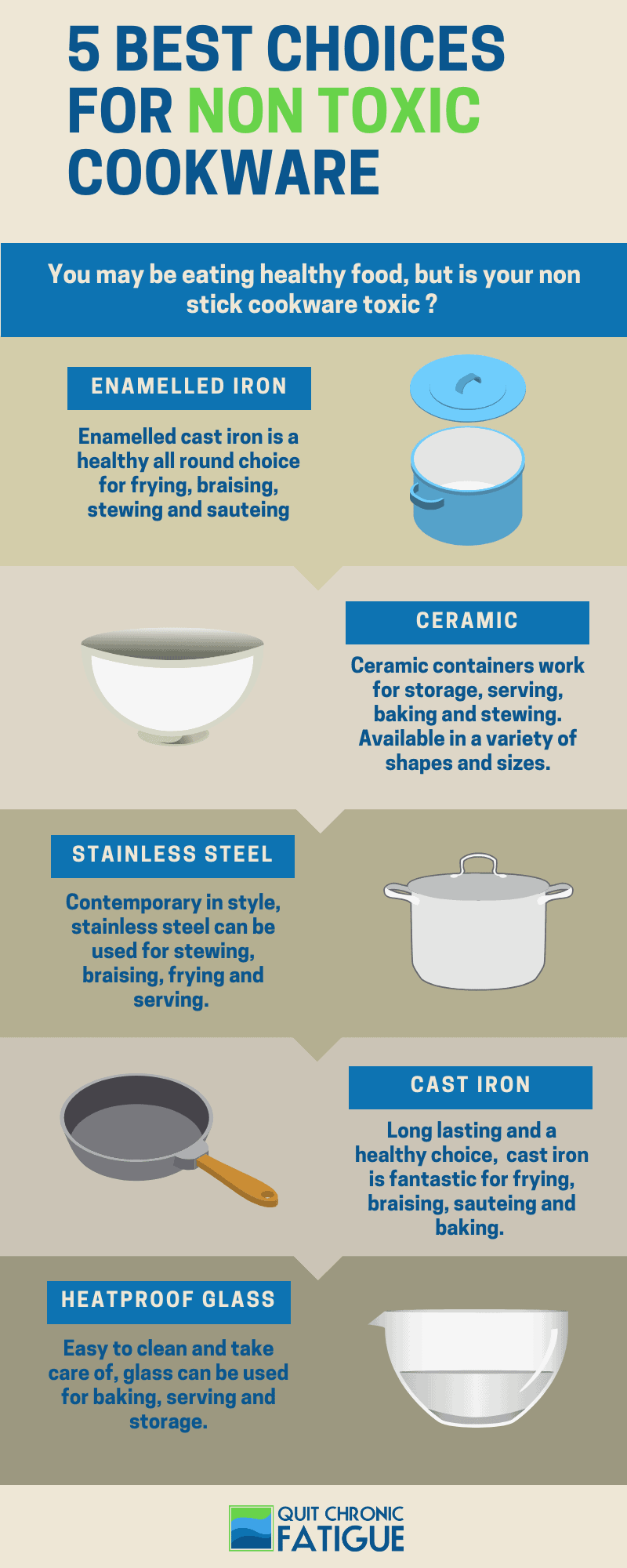
Putting It All Together
Doing whatever you can to reduce your chemical load is important for everyone, and particularly for chronic fatigue sufferers. Your body already lacks sufficient energy to function so it’s important not to add further stress in the form of toxic chemicals.
Understanding why and how to reduce toxins in your home is a great start to improving your health. Simply making a few changes to the food you eat, the cookware you use and how you store it can make a big difference.
How you hydrate your body and how you clean your home can all have a considerable impact on your recovery and general wellbeing. Simply being more mindful of just 5 things will make a difference.
As always, should you have any queries or would like to leave a comment please feel free.

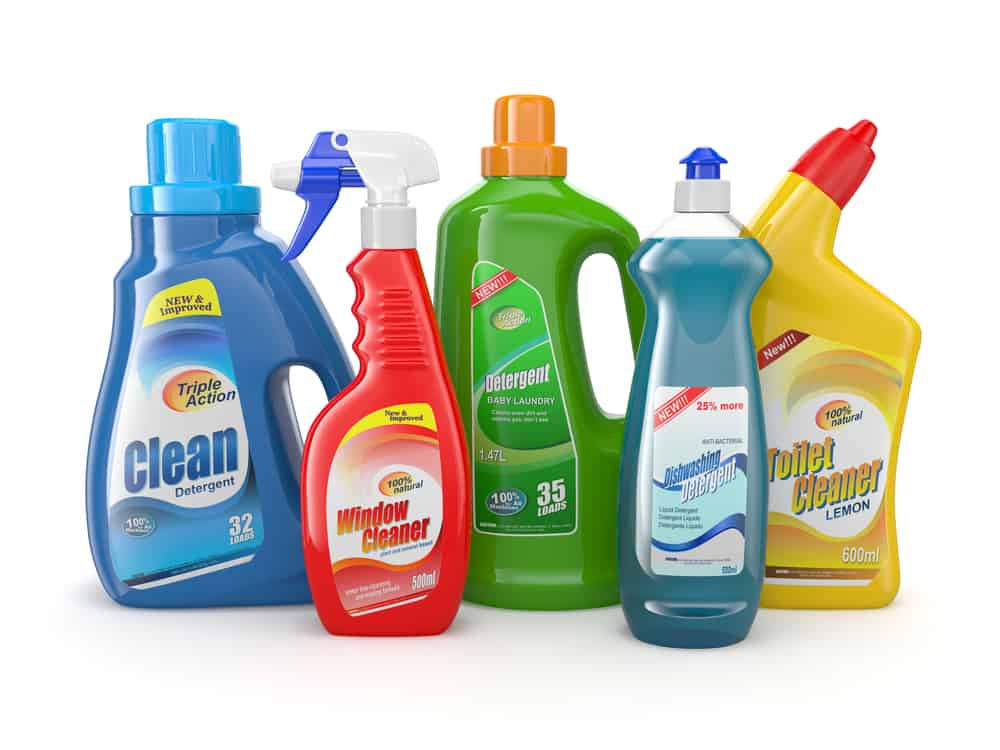
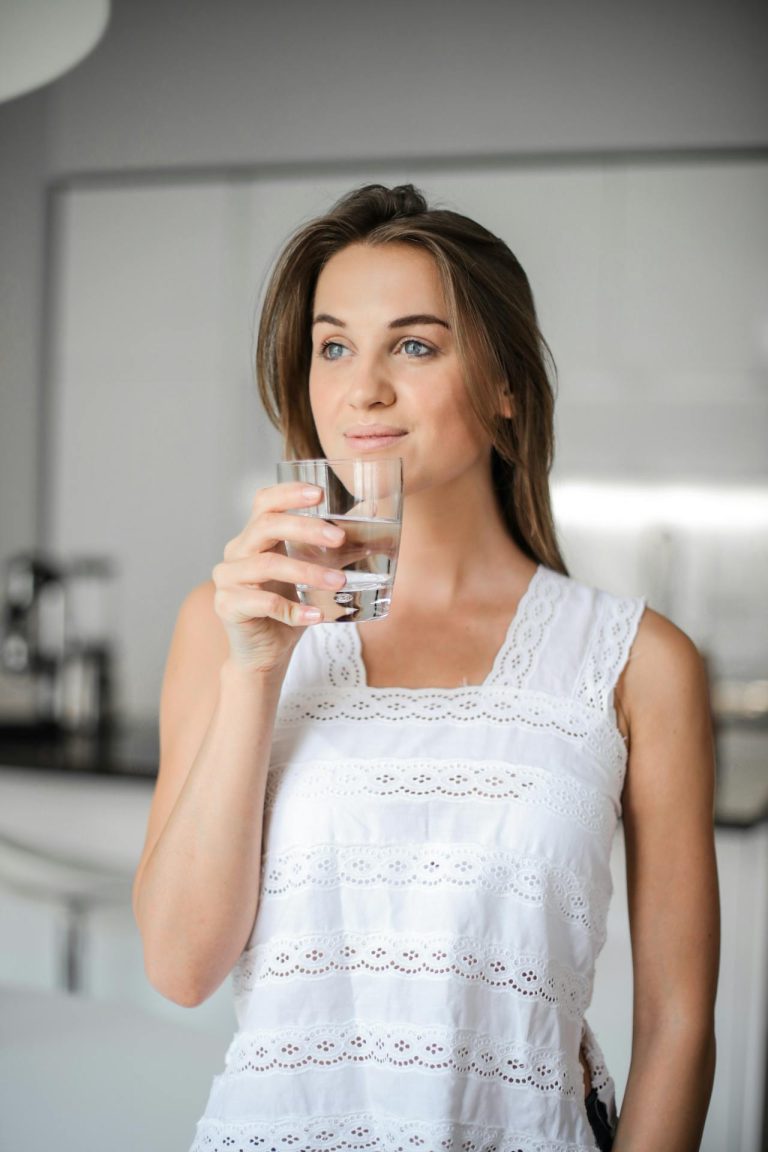


Thank you Ann, for the valuable information you have provided on your site.
I too, am really into making my lifestyle a healthier one, and I have learned some things today that I did not know before.
I especially value your information about the type of cookware to be aware of, and to not use. I will take this information, and apply it to my life in the future.
Cheers,
Liz
Hi Elizabeth Thanks for commenting and I’m glad you found the information helpful. Making small changes to your lifestyle can make a difference in the long term I think.
Hey friend ,great article on plastics.I am always interested in ways to remain healthy from exercise to diet.I liked your article for the following reasons
1. great simple layout
2. easy to read
3.It wasn’t drowned in too much big scientific talk
4.Its a real eye opener how it reveals some very simple ideas on how to implement your ideas.
5.education is the best tool we have in the fight to help society keep healthy and your article contributes to this.
Good work and well done on posting this article,great stuff,thanks heaps !!
Hi Billy I greatly appreciate your positive comments, thanks a lot. I’m glad you enjoyed the article and liked my simplistic approach. I know when I’m reading articles I want it to get to the point as quickly as possible so that I can understand the information and implement it if it’s suitable. Otherwise it’s all just ‘words’.
Yes, unfortunately we’re kind of drowning in plastic nowadays, but fortunately we can make simple changes in our immediate environment that help.
Hello Ann,
I can really relate to what you have written here. Living in Germany, a lot of the water resources are recycled and put back into the rivers to be consumed again by countries further along the rivers course. I was reading an article where some of the medications that were being taken by people further up the river were passing through them and leaving trace amounts in the water that people in the lower countries were consuming. The reason for this is that the processing plants were geared to make the water safe for drinking but not remove all of the residual pharmaceuticals.
After I read this article, I realized that additional filtration of our drinking water was required to prevent inadvertently consuming these pharmaceuticals.
Thanks for the practical suggestions you have provided to help educate people about the risks in their own homes.
Rich
Hi Richard thanks for leaving a comment. Your information is really quite scary. It’s worrying how chemicalized our environment has become. I’m not sure what type of filer would be able to remove the pharmaceuticals you mention……more research on the subject for me I think.
It’s good to know these facts about certain skillets to change out due to the extra junk and burn food markings that can easily go on the next food you prepare. My wife recently changed out a lot of pots and pans for the stainless ones because it can cook foods a lot easier without leaving anything on the bottom of the pot. It’s also plays a role on how your health can factor into this thing and everyone should know about some of these facts if they want to continue to live a healthier lifestyle. Good article.
Hi Martin thanks for your comments and I’m glad to hear your wife already started to change cookware for healthier options.
I agree 100%…There are ton of things that are damaging to our health, we don’t know about it. Especially for children, since im a dad of two.
Good article for raising the awareness of the chemicals around us, and what it can do. What I didn’t know was that organic food would have such a big impact on our health. Good info!
Hi Isaac thanks for your comments. I hope you find some of my suggestions easy to implement. I think the first step is awareness, then putting a plan into action to gradually reduce toxins in the home is pretty easy to carry out.